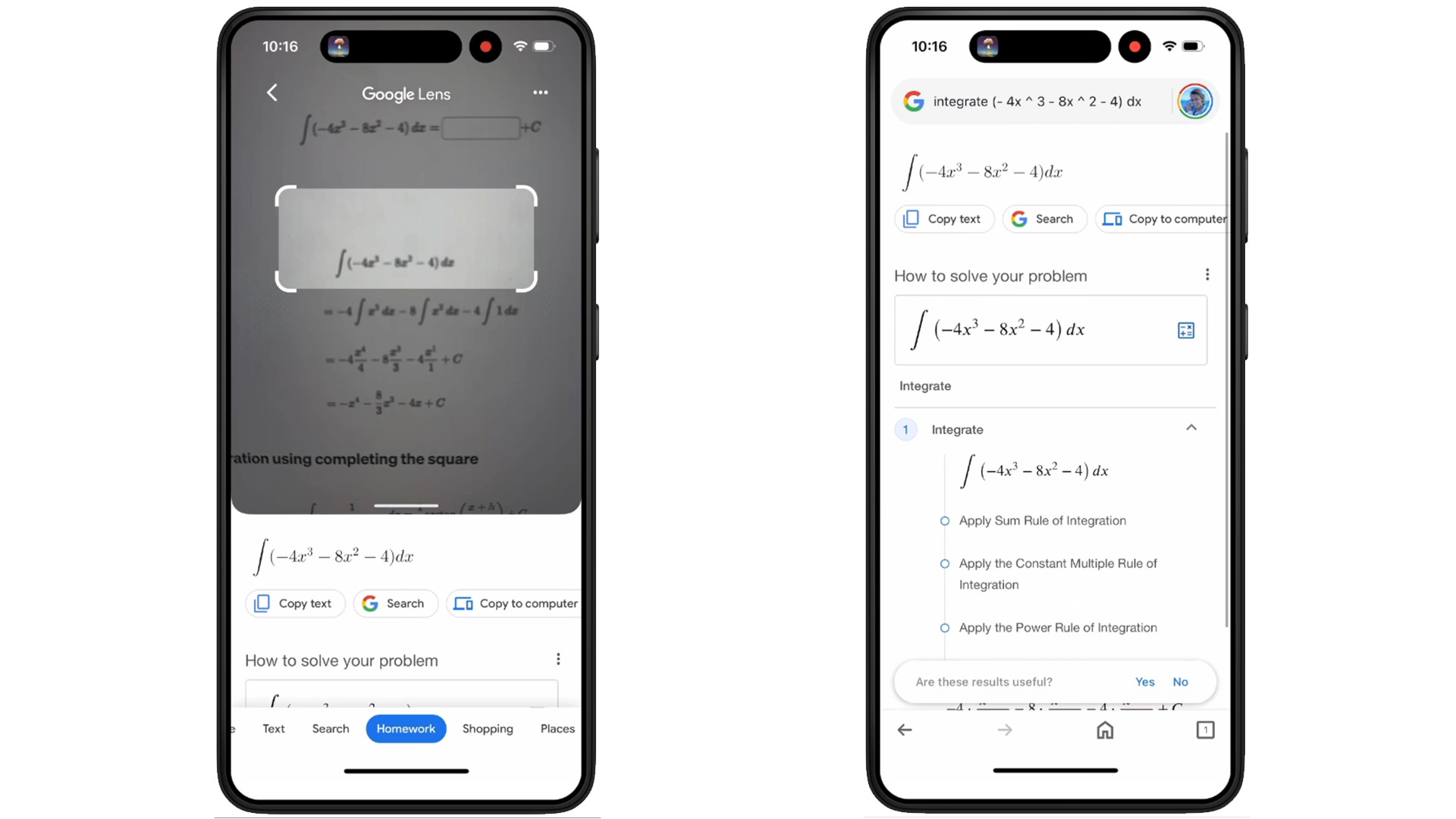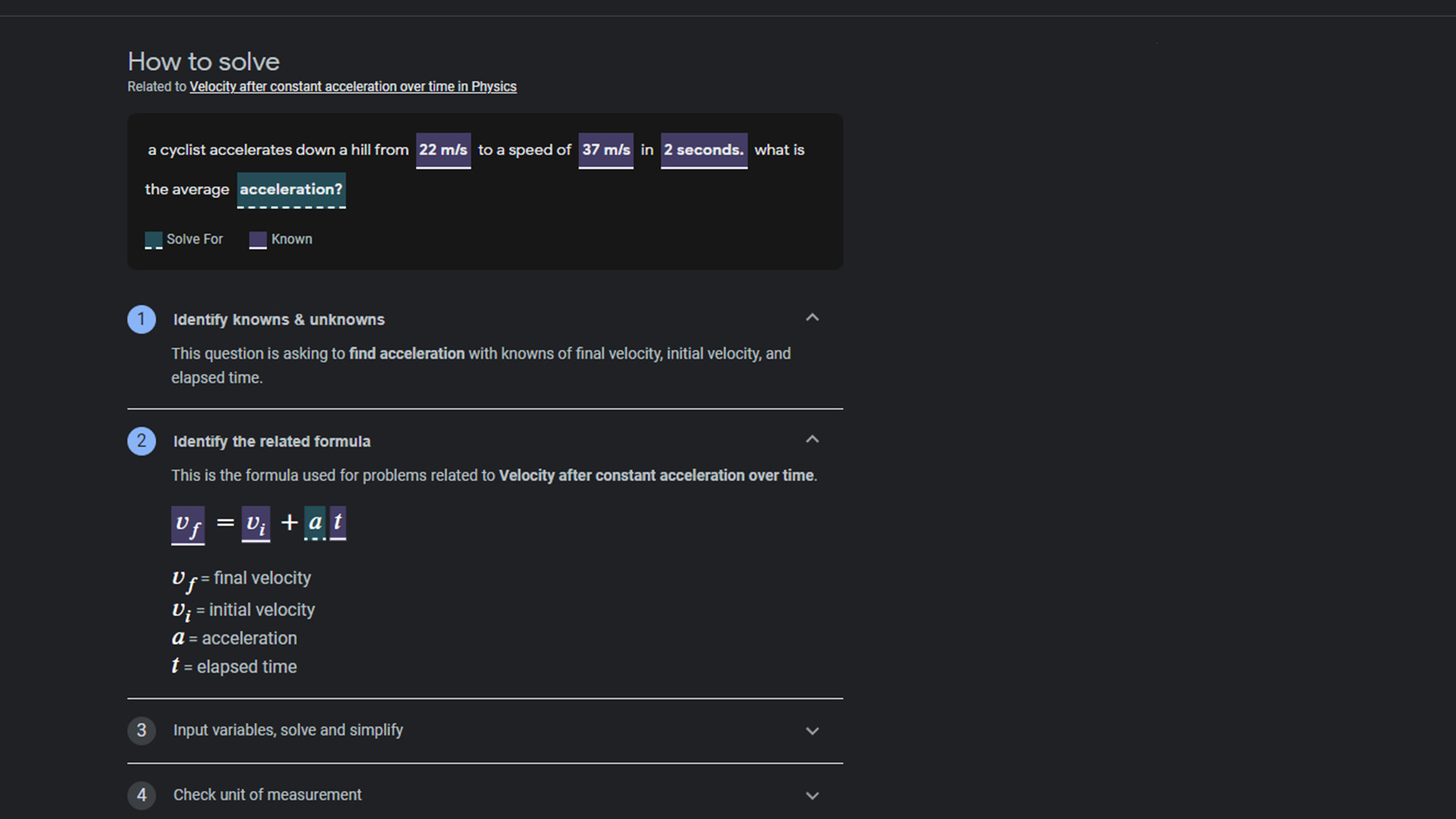Google is updating its search engine and Lens tool with new features to help students visualize and solve tricky math problems.
We’re not talking about basic arithmetic either. The upgraded Google Search can now tackle more complex forms of math like calculus and trigonometry. All you have to do is type in the equation or integral into the text bar at the top or take a picture of your homework with Lens. You’ll then see a series of step-by-step instructions explaining how to solve it with the answer at the bottom. Geometry is also supported with the company recommending people use Google Lens to solve those since they can have diagrams. You won’t be able to draw shapes into the search bar so uploading a photo of the equation is your best bet.

Additionally, you can type in word problems for physics questions. Google Search will highlight the “known and unknown values” and then show you the correct formula to use for that particular equation. As an example, if you need to find out the average acceleration of a cyclist going down a hill, it’ll tell you the specific kinetic formula needed.

The math update is currently live on desktop and the mobile app. Google states you can type the phrase “math solver” in the search bar to try out their new experience on desktop. However, when we did, nothing popped up. It's possible this could be referring to future expansion, but we're not sure. Either way, feel free to directly type the math problem into the search bar. You don’t need to bring up anything else.
Advancement in science
Alongside the mathematics help, Google is rolling out interactive 3D models for certain fields of science such as physics, biology, and chemistry. The diagrams will let you zoom into an object as well as provide definitions of what you’re looking at.
At the time of this writing, the patch doesn’t appear to be widely available. We saw interactive 3D models for basic concepts like individual parts of a cell and periodic elements, but nothing for specific types of cells or molecules. You can look up a model for an oxygen atom, but not a carbon dioxide molecule for instance. What’s more, nothing had a definition. It was just the model.
We reached out to Google asking if this patch is seeing a global release or will only be available in a few countries like the United States. We’ll update this story if we hear back.
Undoubtedly, this will help students advance in their courses. But don't forget about the hardware. If you're in the market for a computer, be sure to check out TechRadar's list of the best student laptops for 2023.
You might also like
from TechRadar - All the latest technology news https://ift.tt/JGb4EP2
No comments:
Post a Comment